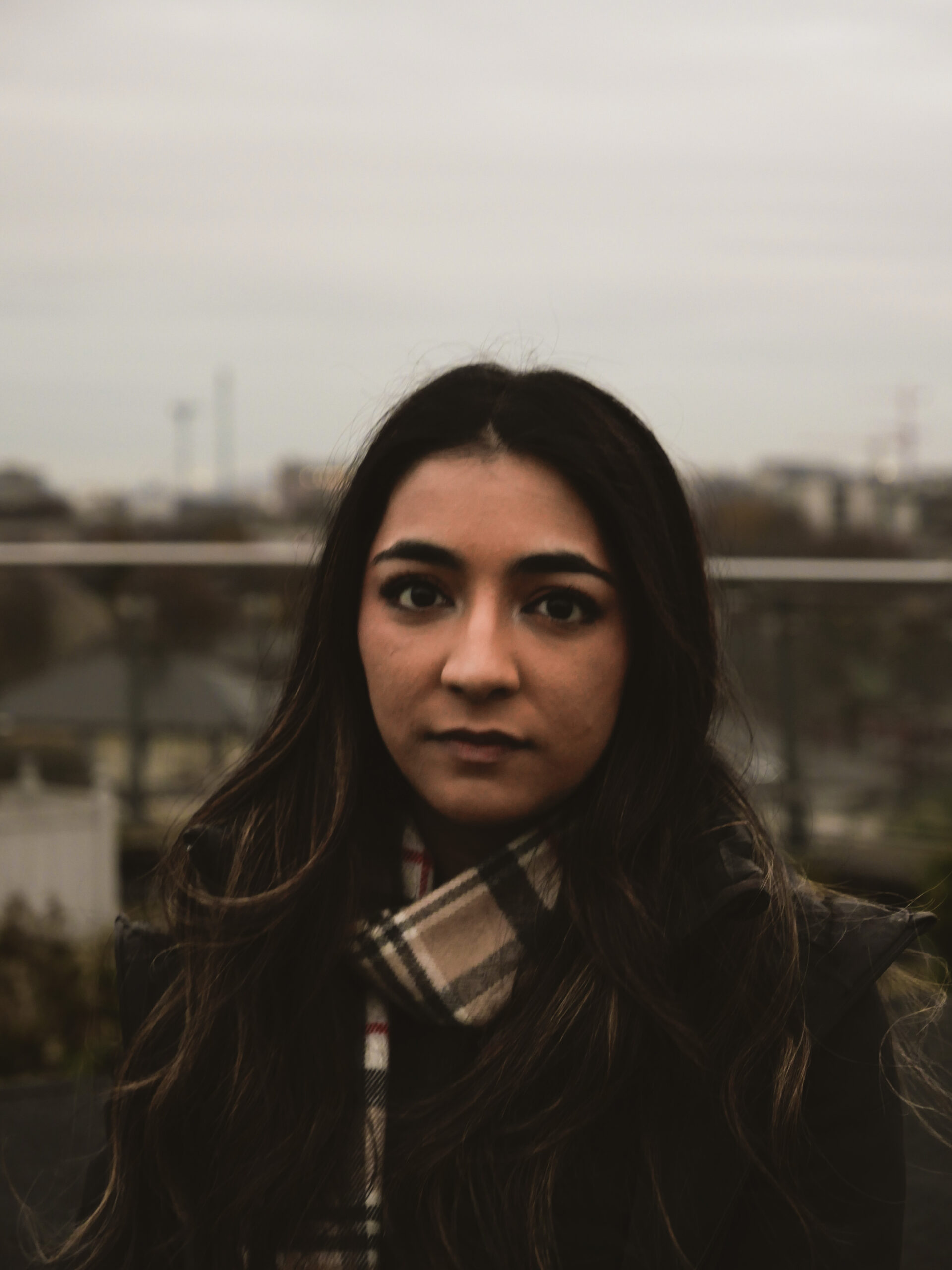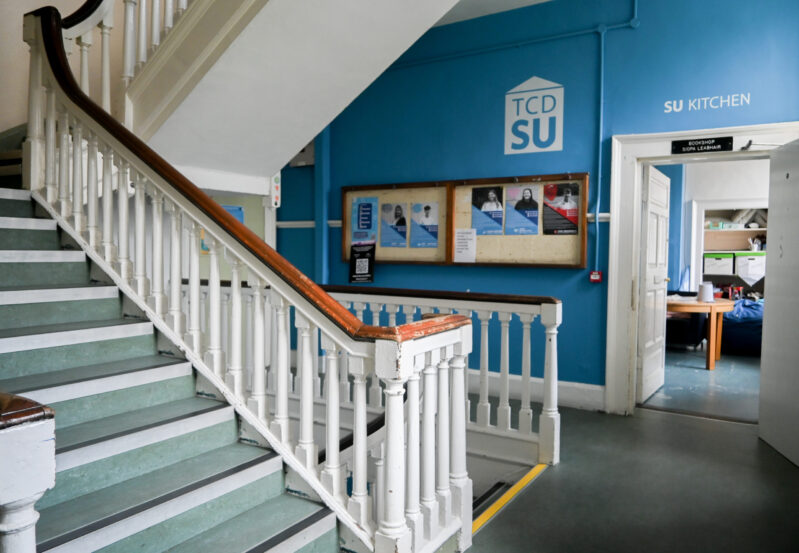When I moved to Ireland in my late twenties to begin medical school, I expected a friendly and welcoming atmosphere based on the country’s warm international reputation. However, as a brown American woman with over six years of living and travelling abroad, I was shocked by the unexpected challenges of racism and sexual harassment. What surprised me even more was the difficulty I encountered in seeking support through Trinity’s Counselling Services to process these experiences.
With time I have come to find that the far majority of Irish people are incredibly kind and hospitable to both immigrants and expatriates alike but, unfortunately, not everyone reflects these welcoming attitudes. Only a week after my move to Dublin, I was greeted by a milk carton splattering at my feet, launched by a group of Irish youths who followed it up with racial slurs during my twilight walk home. On another day, while biking home from class in broad daylight, I was followed by two men in a white van for ten blocks catcalling me and making references to the colour of my skin. A few weeks later, when running to catch a bus home after a late-night study session, I was chastised by a Dublin Bus driver for being out late. When dropped off at my stop, he blew kisses and made sexual gestures towards me. On the day of my last exam of the first semester of my programme, I brushed past a seated man in preparation to get off at the next station on a crowded Luas carriage. Unprompted, he hurled insults at me; phrases such as “go back to your country” and “stop stealing our jobs”, in between being called an “ugly woman”.
The effect of these micro-aggressions was insidious. I noticed my behaviour slowly changing as the school year progressed. I began to think twice about what I was wearing in the mornings, would feel anxious before stepping outside my door, and a honk by a car on the street while biking to class would provoke feelings other than just whether I was in the way or not. Over time, this discomfort started to extend beyond specific moments, permeating my sense of self and safety. I felt uncomfortable in my skin and that I did not belong in my environment.
I’ll be honest, it was not easy to accept the fact that these incidents were truly affecting me. After all, I had grown up in the United States, a country grappling with its systemic racism, I have lived in four different countries, and have spent most of my adult life backpacking and travelling the world. I endured a childhood of struggling to accept my identity having grown up in a mostly all-white neighbourhood in Los Angeles, California. Over the past six years, I have grown to become proud of the colour of my skin and my identity as a person of colour. I kept telling myself, this should not be affecting me as much as it was. Just move on. Push past it.
However, after several sleepless nights of tears and anxiety, where the shadows of these experiences unwillingly and repeatedly played on the backs of my closed eyelids, I knew I needed to seek help. I turned to Trinity’s Counselling Services, hopeful that someone could help me process what I had been through. What I encountered, however, was far from the empathetic and culturally competent help I needed.
While Student Counselling did promptly respond to my outreach, my explicit request for a therapist of colour who could comprehend and validate my unique perspective as a visible minority revealed a sad truth – there was no therapist of colour on staff. It was disheartening to realise that, in a diverse and globalised world, the counselling services at Trinity had not prioritised cultural competence in their staffing. Considering the resources available, I still proceeded with an emergency appointment with the on-duty counsellor.
The counsellor’s compassionate response was a testament to her empathy, but as the session unfolded, it became apparent that empathy alone could not provide the necessary support for what I had experienced. By the end of the session, I had spent more time explaining and justifying what I had experienced and its effect on me rather than focusing on processing my emotions and experiences. In a moment when I needed someone who could validate and genuinely understand the nuances of my experiences, the realisation hit hard – Trinity was not set up to deal with my experiences of racism. For further help, I was offered sessions with an external service, Inspire Wellbeing, rather than Trinity’s Counselling Service, due to overwhelming student demand.
However, this time, when I reached out to InspireWellbeing, I was told that there was no ‘coloured’ person on staff. I had to explain to the person triaging me the historical associations of segregation and discrimination that came with calling a person ‘coloured;’ as opposed to a ‘person of colour’. Why was I having to do this?
In the ensuing appointment, the therapist explained away the aforementioned incidents of racism I faced by telling me that the various perpetrators would have found me “beautiful” and “interesting”. Although I appreciated her well-meaning attempt to make it seem like it wasn’t my fault, she seemed reluctant to fully address my racialisation by those men and steered dangerously close to victim blaming. I do not know if this is because she did not understand me or if it was an unfortunate and unconscious symptom of a potential institutional issue within Ireland to avoid the topic of race but at the same time use it to excuse the behaviour of others.
The importance of mental health support for students cannot be overstated, particularly for those navigating the complexities of studying in a foreign country. It is incumbent upon educational institutions to recognise the diverse backgrounds of their student body and provide counselling services that reflect this diversity.
Trinity College Dublin must acknowledge and rectify the gaps in its mental health support system. It should never be satisfied that enough is being done, question what more it can do to refrain from complacency, and consistently explore ways to improve its current operational framework. This includes continuing to invest in training for counsellors that fosters cultural competency and sensitivity to the unique challenges faced by international students, especially those who encounter racism. A key part of this is ensuring that counsellors are introduced to those who have lived experience of racism through their training and also allowing counsellors to discuss their thoughts about their own unconscious bias when it comes to race.
Additionally, the university should actively work towards diversifying its counselling staff to ensure that students can access therapists who share their cultural backgrounds. Having a therapist of colour can make a significant difference in providing a safe space for students to process their experiences and receive meaningful support. I see that the Trinity Counselling Service has recently added Black Therapists Ireland to their advertised external services for students. Perhaps they could come to a similar arrangement with them as they have with Inspire Wellbeing so that Trinity can provide a service, free to students and staff, for persons of colour to see a therapist of colour, especially if Trinity does not have any counsellors of colour currently on its staff. This would represent a step forward in enacting positive change rather than a reactionary response to complaints.
My decision to write this article and share my experiences with racism is not just a cathartic exercise but also an attempt to break the silence surrounding the University’s lack of resources to help students dealing with racism. I know that many people, including myself, grapple with the aftermath of discriminatory incidents but may lack the courage or confidence to voice their experiences.
As I sat down with my laptop to put the finishing touches on this article at Trinity Biomedical Sciences Institute after class on Thursday, November 23rd, 2023, I witnessed the unfolding of racially aggravated riots that would consume Dublin City Center as I typed. I started to receive concerned texts and calls from friends just moments before I was forced to leave the building by security in the midst of the riots with no mention of safe areas or resources I could avail of to protect myself. At the same time, pubs not two kilometres down the road were locking in their patrons for their own protection. The events of that evening emphasise the timeliness and urgency of sharing these stories. As the city grapples with the aftermath of race riots and anti-immigrant sentiment, my experiences become not just personal anecdotes but a testimony to the broader societal issues that demand attention and change.







